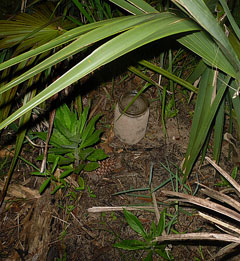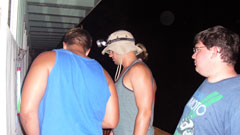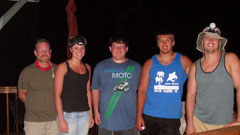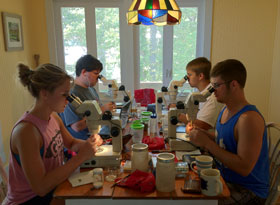Cockroaches of North America and their Gregarine Parasites
Hotel Intestine receives major funding support from the National Science Foundation through NSF award 1019419 entitled: "RUI: Biodiversity Inventory: Gregarines Parasitizing North American Cockroaches".
The project surveys and documents the biodiversity of North American cockroaches and their gregarine parasites. This is the first comprehensive survey of North American cockroaches since 1917 and the project will discover and describe 60-120 new gregarine species. Gregarines are protistan parasites of insects: although closely related to the malarial parasites of humans, gregarines do not infect vertebrates. Of the 72 cockroach species known in North America, only 8 infest human habitations: most are "wild", poorly known species with little human impact. The project discovers and documents cockroach and gregarine diversity through field survey, preparation of permanent museum collections, and the generation and analysis of morphological and molecular data. The project quantifies the effects of host species diversity and the environment on speciation using controlled studies of parasite development and experimental cross-infection of parasites among host species.
The project examines a basic question of biodiversity: what roles do host diversity and environmental conditions play in the formation and persistence of parasitic species? These questions underlie all biodiversity survey and their solution is key to understanding the formation and persistence of biodiversity as well as techniques for rapidly discovering and describing new species. Pragmatically, the project builds a specimen base to investigate and monitor the effects of climate change on biodiversity: cockroach distributions are delimited by climate but have not been surveyed in almost a century. The project also trains undergraduate students who will likely choose to pursue careers in science as a direct result of their research experience.




